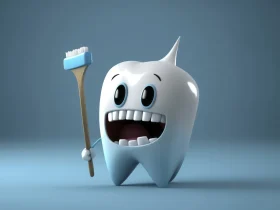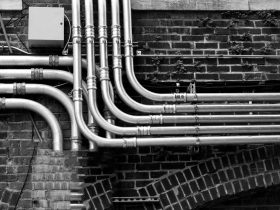Have you ever experienced a ringing in your ears after attending a loud concert or working in a noisy environment? If so, you may have experienced hearing loss caused by exposure to loud noise. Loud noise can be damaging to the delicate structures of the ear and can lead to permanent hearing loss. In this article, we’ll take a closer look at how loud noise causes hearing loss, and what you can do to protect your hearing.
The Anatomy of the Ear
Before we dive into how loud noise can damage the ear, let’s first review the anatomy of the ear. The ear is made up of three main parts: the outer ear, the middle ear, and the inner ear.
The outer ear includes the pinna (the visible part of the ear) and the ear canal. The middle ear houses the eardrum and three ossicles, which are small bones. Lastly, the inner ear is home to the cochlea, a spiral-shaped structure filled with tiny hair cells that convert sound waves into electrical signals sent to the brain.
How Loud Noise Affects the Ear
When we are exposed to loud noise, the sound waves enter the ear and cause the eardrum to vibrate. These vibrations are transmitted to the ossicles in the middle ear, which in turn transmit the vibrations to the cochlea in the inner ear. The hair cells in the cochlea are responsible for converting the vibrations into electrical signals that are sent to the brain.
However, exposure to loud noise can cause damage to the hair cells in the cochlea. This damage can be caused by a one-time exposure to an extremely loud noise, such as an explosion or gunshot, or by repeated exposure to loud noise over time, such as working in a noisy factory or attending loud concerts regularly.
When exposed to loud noise, the hair cells can become overstimulated, causing them to release too much glutamate, an excitatory neurotransmitter. The excess glutamate can lead to an influx of calcium, which can damage or destroy the hair cells.
The damage to the hair cells can lead to a variety of hearing problems, including tinnitus (ringing in the ears), difficulty hearing high-pitched sounds, and even complete hearing loss. The extent of the damage depends on the intensity and duration of the noise exposure, as well as individual factors such as age and genetic predisposition.
Types of Hearing Loss Caused by Loud Noise
There are two types of hearing loss caused by loud noise: temporary and permanent.
- Temporary hearing loss occurs after exposure to a loud noise, such as a concert or fireworks. The symptoms typically include muffled hearing, ringing in the ears, and difficulty hearing in noisy environments. This type of hearing loss usually resolves on its own within a few hours to a few days.
- Permanent hearing loss, on the other hand, is permanent and can occur after repeated exposure to loud noise. Over time, the hair cells in the cochlea can become damaged or destroyed, leading to irreversible hearing loss. This type of hearing loss is usually gradual and may not be noticeable at first. However, it can eventually lead to difficulty hearing speech, particularly in noisy environments.
Preventing Hearing Loss from Loud Noise
Fortunately, there are several steps you can take to protect your hearing from loud noise. The most effective way is to avoid exposure to loud noise whenever possible. If you must be in a noisy environment, such as a concert or construction site, wear earplugs or earmuffs to help reduce the noise levels.
It’s also essential to take breaks from loud noise whenever possible. If you’re exposed to loud noise for an extended period, step outside or into a quieter environment for a few minutes to give your ears a break.
Regular hearing tests are another crucial way to protect your hearing. A hearing test can identify any changes in your hearing and allow you to take steps to prevent further damage. If you suspect that you may have hearing loss, schedule a hearing test with an audiologist as soon as possible.
In addition to these measures, it’s important to practise good hearing health habits. This includes avoiding the use of headphones or earbuds at high volumes, and taking breaks from noisy activities to give your ears a rest.
Exposure to loud noise can cause damage to the delicate structures of the ear and lead to hearing loss. The damage is caused by the hair cells in the cochlea becoming damaged due to the intensity and duration of the noise exposure. But, it’s possible to protect your hearing by understanding how loud noise affects the ear and taking steps to prevent exposure. If you’re concerned about your hearing, consider scheduling a hearing tests Marrickville with an audiologist. By taking steps to protect your hearing, you can enjoy a lifetime of healthy hearing.








Leave a Reply